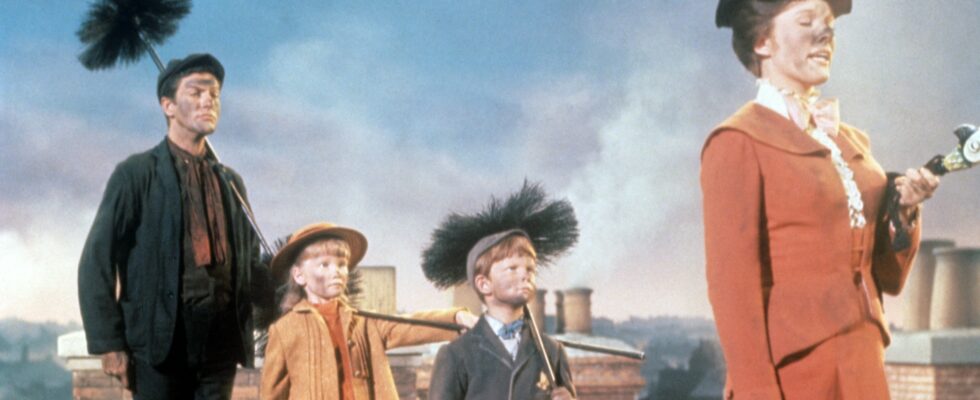Yanis Darras
modified to
3:11 p.m., February 27, 2024
As the film prepares to celebrate its 60th anniversary this year, Disney’s 1964 adaptation of Mary Poppins is changing its classification in the United Kingdom. Until now considered universal, it now falls into the PG category, those films to be watched in the presence of an adult. At issue: a derogatory colonial term.
What if Mary Poppins no longer enchanted children’s lives? For its sixtieth anniversary year, Disney Studios’ adaptation of Pamela Lyndon Travers’ novel has lost its “general public” status in the United Kingdom. At the end of last week, the British Board of Film Classification (BBFC) transferred the film from a U rating, assigned to so-called “universal” films, to a PG rating. This category, which means “children guided by parents” in French, is attributed to feature films in which the presence of parents is strongly requested, due to scenes or comments that may offend young people.
A reclassification because of a derogatory term
Can Mary Poppins now offend the sensibilities of young people? This is the justification of the BBFC, which considers that certain comments can be judged as “discriminatory”. Thus, the character of Admiral Boom refers twice in the English – but also French – version of the film to the “Hottentots”. A derogatory term which was then used by European settlers to designate the Khoikhoi, a people present in southern Africa.
This word is then used in the film to designate the chimney sweeps present in the image, their faces covered in soot. Five years ago, the New York Times pointed out the use of soot, a sort of blackface. In a scene from the film, a servant seeing the chimney sweep covered in soot screams: “Don’t touch me, black savage! (…) If this Hottentot comes in through the chimney, I will come out through the front door.”
Soon a warning note?
Despite this change in classification, the BBFC ensures that this change is primarily for the education of all, without distorting the work. In recent years, rather than removing certain passages now perceived as racist or out of step with our times, Disney has chosen to offer an information note before the start of certain films.
It is therefore possible that in the coming months, Mary Poppins will join the list of these films, as did Aladdin, Peter Pan or Lady and the Tramp.
